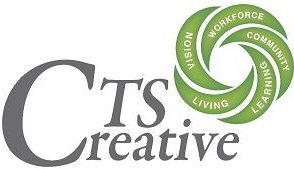The Early Intervention program provides comprehensive and coordinated educational, health and social services to families of children under the age of three who exhibit developmental delays or have a medical/handicapping condition so that families may increase their understanding of their child in order for the child to function in the environment of choice.
The goal of this program is to provide comprehensive services to the child and family served, to complete evaluation assessments and narrative to be returned to Child and Family Connections (CFC) within 4 working days, to locate children and perform screenings, and to raise community awareness.
The program services infants and toddlers from birth to three and their families who live Gallatin, Saline, and White counties.
Anyone may refer a child for screening, including parents, relatives, social workers, nurses, doctors, etc., by calling phoning 618-252-027. If the child has delays he/she will be referred to Child and Family Connections for further evaluations.
Children that have a significant developmental delay, or have certain medical diagnosis that have a high probability of developmental delay, should be referred to Child and Family Connections. CFC is the starting point for any child beginning possible Early Intervention services in the State of Illinois.
Early Intervention Program Admission Criteria:
- Ages of newborn to three.
- Residents of Saline, Gallatin, White, Hamilton, Pope, Hardin, Franklin and Williamson Counties in Illinois.
- Authorization signed for consent to screen.
- Exhibiting developmental delays or has a medical condition.
- Authorization signed for release of pertinent medical information.
Services provided through this program:
- Homebound programming and service delivery
- Developmental screening/Evaluation services
- Family education
- Transition services
- Service coordination
- Referral and follow-up for medical, dental and financial issues
- Lending library of toys, books, references, car seats, and limited adaptive equipment
Developmental Checklist
When you review the checklist, remember that each child develops at his or her own pace. The age listed on the checklist is the time when most children usually start the activity. If your child is not doing one activity at the age listed, there is probably no need to be concerned. However, if your child is late in doing several activities, you should discuss it with your child’s doctor.
Usual Activities During:
1 Month:
- Able to raise head from surface when lying on tummy
- Pays attention to someone’s face in his or her direct line of vision
- Moves arms and legs in energetic manner
- Likes to be held and rocked
2 Months
- Smiles and coos.
- Rolls part way to side when lying on back.
- Grunts and sighs.
3 Months
- Eyes follow a moving object.
- Able to hold head erect.
- Grasps objects when placed in his or her hand.
- Babbles
4 Months
- Holds a rattle for an extended period of time.
- Sits supported for short periods of time.
- Laughs out loud.
- Recognizes bottle and familiar faces.
6 Months
- Turns over from back to stomach.
- Turns toward sounds.
- Sits with a little support (one hand bracing him/her).
- Persistently reaches for objects out of his or her reach.
- Listens to own voice.
- Crows and squeals.
- Reaches for and grasps objects and brings them to mouth.
- Holds, sucks, bites cookie or cracker begins chewing.
- Can transfer object from one hand to the other.
- Can sit for a few minutes without support.
- Pats and smiles at image in mirror.
- Creeps (pulling body with arms and leg kicks).
- Is shy at first with strangers.
8 Months
- Can sit steadily for about five minutes.
- Crawls (on hands and knees).
- Grasps things with thumb and first two fingers.
- Likes to be near parent.
9 Months
- Says Ma-ma or Da-da
- Responds to name
- Can stand for a short time holding onto support
- Able to hit two objects together on his or her own
- Copies sounds
10 Months
- Able to pull self up at side of crib or playpen.
- Can drink from a cup when it is held.
11 Months
- Can walk holding onto furniture or sides of crib or playpen.
- Can find an object placed under another object.
12 Months
- Waves bye-bye.
- Can walk with one hand held.
- Says two words besides Ma-ma/Da-da.
- Enjoys some solid foods.
- Finger feeds self.
- Likes to have an audience.
15 Months
- Walks by self; stops creeping.
- Shows wants by pointing and gestures.
- Scribbles on paper after shown.
- Begins using a spoon.
- Cooperates with dressing.
18 Months
- Can build a tower with 3 blocks.
- Likes to climb and take things apart.
- Can say 6 words.
- Tries to put on shoes.
- Drinks from cup held in both hands.
- Likes to help a parent.
2 Years
- Able to run.
- Walk up/down stairs using alternate feet.
- Says at least 50 words.
- Sometimes use 2-word sentences.
- Points to objects in a book.
3 Years
- Can repeat 2 numbers in a row.
- Knows his or her sex.
- Dresses self except for buttoning.
- Can copy a circle.
- Can follow 2 commands of on, under, or behind (i.e., stand on the rug).
- Knows most parts of the body.
- Jumps lifting both feet off ground.
- Can build tower with 9 blocks.
